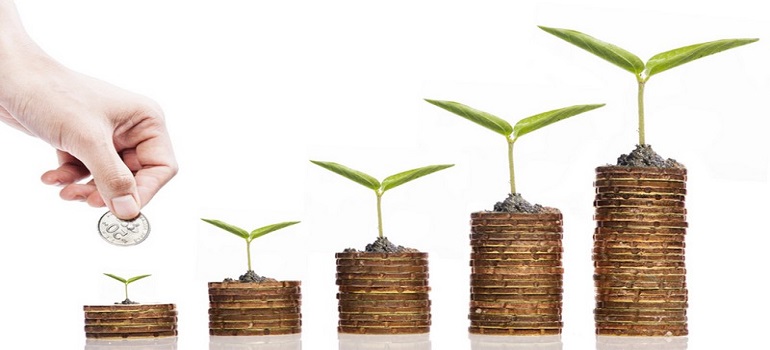
On this World Environment Day, ITC reaffirmed its commitment towards a Greener Earth through its bold Sustainability 2.0 agenda.
Building on its sustainability journey of over two decades, ITC, under the leadership of its Chairman, Sanjiv Puri has articulated an ambitious Vision to scale up its efforts in fighting climate change, whilst supporting large scale sustainable livelihoods.
Commenting on ITC’s multidimensional sustainability initiatives, Mr. S Sivakumar, Group Head, Agri, IT and Sustainability, ITC Ltd, said “ITC has, over the years, implemented innovative business models which synergise the building of economic, environmental, and social capital as a unified strategy. Today, our ambitious Sustainability 2.0 agenda aims to further strengthen ITC’s efforts towards decarbonisation, building green infrastructure, promoting climate-smart and regenerative agriculture, ensuring water security for all, restoring biodiversity through nature-based solutions, creating an effective circular economy, creating sustainable packaging solutions and enabling the transition to a net zero economy. We believe this will go a long way in combating the climate crisis and supporting meaningful livelihood opportunities.”
ITC is today the only Company of comparable dimensions to be water, carbon, and solid waste recycling positive for over a decade and a half. In recognition of its superior Environmental, Social and Governance (ESG) models, the Company has been rated ‘A -’ at the Leadership Level for both Climate Change and Water Security by CDP, ‘AA’ by MSCI-ESG (the highest amongst peers) and was also included in the Dow Jones Sustainability Emerging Markets Index.
As a part of its efforts to transition towards Net Zero, ITC has made significant investments in renewable energy. Currently, clean energy powers 24 factories, 14 hotels, and 5 office buildings of the Company across 14 states. Last year, ITC set a target to meet 100% of its grid electricity requirements from renewable sources by 2030. Currently, it meets around 42% of all its electrical energy requirements through renewable means. With a focus on solar energy, the Company has commissioned both onsite and offsite plants across states. ITC has maximized usage of rooftops of its Integrated Consumer Goods Manufacturing and Logistics (ICML) facilities, factories and warehouses for solar power generation. As many as 39 properties of ITC are Platinum rated green buildings by USGBC-LEED/IGBC. ITC’s Windsor Hotel in Bengaluru became the first hotel in the world to be LEED® Zero Carbon certified, followed by ITC Grand Chola and ITC Gardenia.
To contribute to a ‘Greener Earth’, ITC has also been running an integrated water stewardship programme, covering over 1.33 million acres of land and creating a total rainwater harvesting potential which was over 3 times the net water consumed by its operations during last year. The demand management interventions for promoting water efficiency in agriculture have resulted in potential water savings to the tune of 496.5 million cubic metres till date. Following the Alliance for Water Stewardship (AWS) Platinum level certification of ITC’s Paperboards and Specialty Papers unit at Kovai, the first ever site in India to achieve the highest global standard, the Company is in the process of implementing the AWS Standards and obtaining certification at other units in high water stress areas.
Similarly, ITC’s extensive biodiversity programme focusses on reviving ecosystem services provided to agriculture such as natural regulation of pests, pollination, nutrient cycling, soil health retention and genetic diversity, which have witnessed considerable erosion over the past few decades. The initiative has cumulatively covered 1.3 lakh acres in more than 29 districts across 10 states. ITC aims to expand the programme to cover over 10,00,000 acres by 2030.
To derisk agriculture from effects of climate change, ITC has introduced a Climate Smart Agriculture programme, which covers 15 lakh acres, benefitting over 4.5 lakh farmers. As an integral part of this, a Climate Smart Village initiative covering over 2,500 villages and over 8.2 lakh acres, has led to reduction in GHG emissions by up to 66% and an increase in communities’ income by up to 93% for soyabean crop in Madhya Pradesh. ITC’s large-scale social and farm forestry programme has greened over 9,50,000 acres, generating over 173million person days of employment.
Moving towards Circular Economy, the Company went beyond plastic neutrality in 2021-22 by collecting and sustainably managing more than 54,000 tonnes of plastic waste across 35 states/union territories. ITC’s flagship solid waste management programme, ITC ‘WOW – Well Being Out of Waste’ programme, has covered over 1.8 crore citizens providing sustainable livelihood to more than 17,300 waste collectors.
In line with its Vision for a sustainable packaging future, ITC’s Paperboards and Packaging Businesses have leveraged cutting-edge research and innovation capabilities of ITC Life Sciences and technology Centre to launch several first-of-its kind packaging solutions, which facilitate reduction, substitution and recyclability of plastic. The Company is now endeavouring to ensure that over the next decade, 100% of its packaging is reusable, recyclable or compostable/biodegradable.

